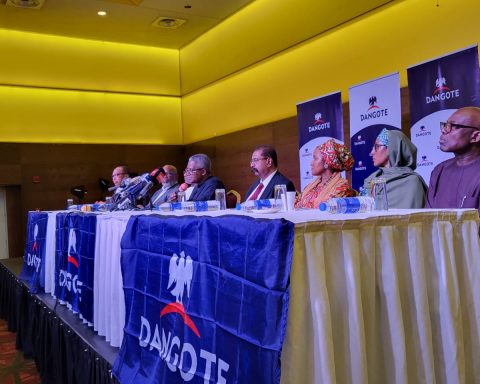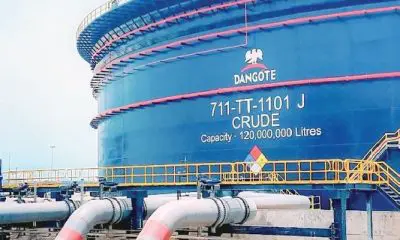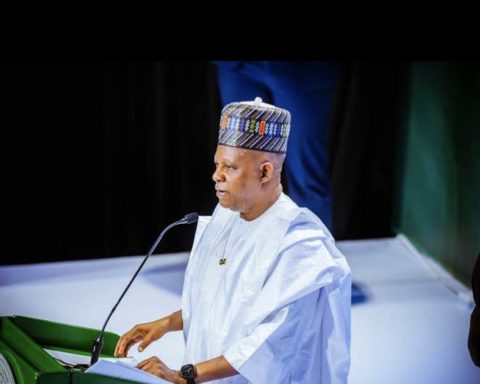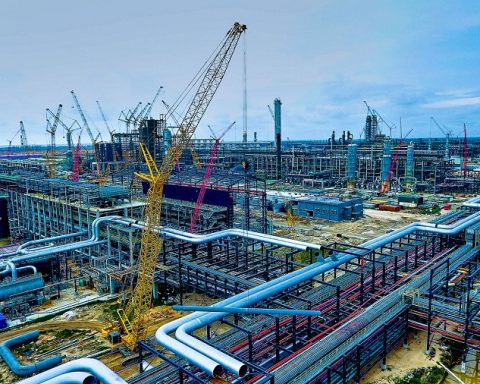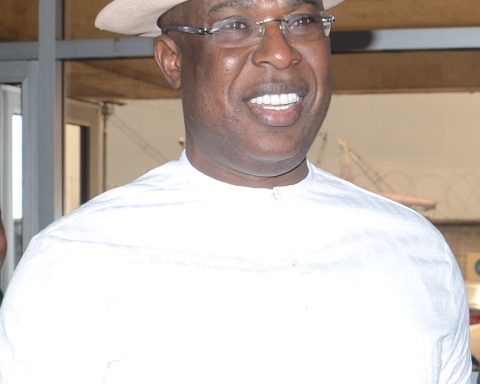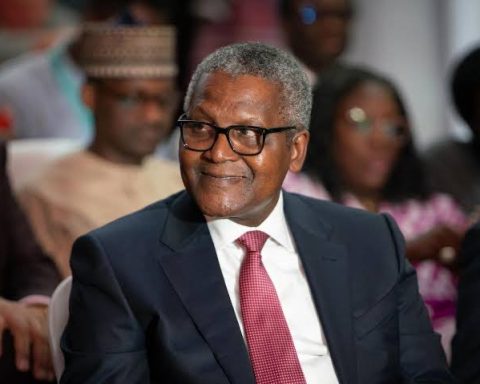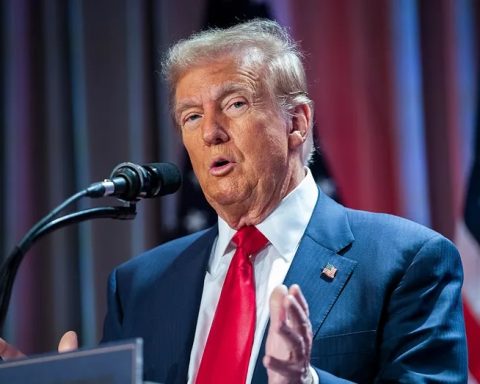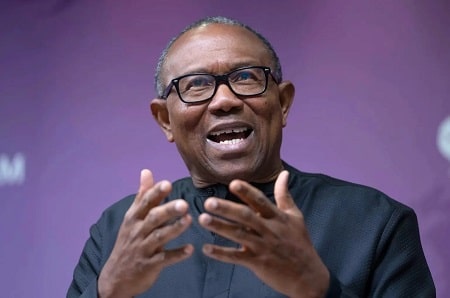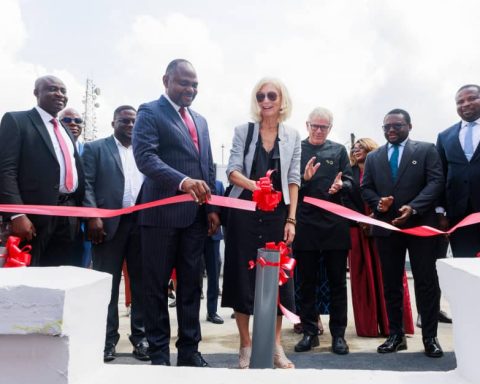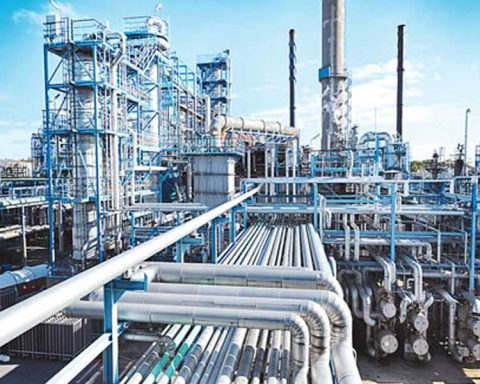As talks about attaining energy self-sufficiency dominate discourse, energy expert, Mr Ikechukwu Okafor, has said it will be an anathema for Nigeria to have a 650,000 barrels per day Dangote refinery and still be importing refined petroleum products.
Africa’s richest man and owner of the $20 billion Dangote Refinery, Aliko Dangote, recently called on the Nigerian government to ban fuel imports under President Bola Tinubu’s “Nigeria First” policy.
Join our WhatsApp ChannelDangote’s call has sparked significant backlash from fuel marketers and industry groups, who warn that such a ban could create a monopoly, destabilize the market, and affect consumers.
Dangote refinery, though operating at 85 per cent capacity, has been distributing Premium Motor Spirit, also known as petrol, Diesel, and aviation fuel domestically, and also exporting. Some major marketers have also continued to import the products since the removal of petrol subsidy.
Speaking during the Conference on West African Refined Fuel Markets, organized by the Nigerian Midstream and Downstream Petroleum Regulatory Authority in collaboration with S&P Global Insights, Dangote called for the inclusion of petrol, diesel, and other refined petroleum products in the list of items restricted by the Nigeria First policy.
The “Nigeria First” initiative aims to prohibit government agencies from importing items that can be manufactured within the country. In May, Tinubu restricted government departments from purchasing goods or services from abroad if they are already available locally.
The policy stipulated that acquiring foreign products or services that are already accessible in Nigeria should not move forward without proper justification and a waiver from the Bureau of Public Procurement.
Dangote emphasised that Nigeria should prioritise local refining and stop importing petroleum products, which he claimed were often substandard and “toxic.” He stated that some imported fuels are blended with discounted Russian crude, making them cheaper than locally produced fuels and undermining Nigerian refineries.
He accused importers of flooding the Nigerian market with low-quality fuels that do not meet European or North American standards.
READ ALSO: Dangote Refinery Uncovers Fuel Diversion Racket, Suspends Discount Scheme
The billionaire industrialist said his refinery has already exported 1.35 billion litres of petrol in 50 days, proving Nigeria can meet domestic demand and even export surplus fuel.
However, marketers have kicked against his call, expressing fears of a monopoly of the downstream petroleum industry.
In an interview with Prime Business Africa, Mr Okafor, who retired as a director at the Nigeria National Petroleum Company (NNPC), said Dangote refinery has the capacity to meet Nigeria’s demand for petroleum products.
“We can’t have a 650,000 barrels per day refinery producing and we are still importing. There has to be some way of consuming what we produce,” Okafor stated in an interview with Prime Business Africa on Monday.
Making a case for why the Dangote refinery is critical to Petroleum products supply in the country, he said the total capacity of all the state-owned refineries when they were working was 445,000bpd, but energy demand has gone beyond that as of today.
On concerns about an attempt to monopolise the market, Okafor said the country should be grateful to Dangote for building the refinery that came on stream at a time the country was grappling with high cost of imported fuel after subsidy removal.
READ ALSO: Oil, Gas Suppliers Kick Against Dangote’s Direct Supply To End Users
According to him, it is inefficiency that made the state-owned refineries remain moribund over the years.
“We should be grateful to Dangote. Imagine if Dangote refinery didn’t come on stream, we would still be importing with all the corruption that is going to be tied to it.”
While stating that Dangote’s call for an import ban is part of efforts to protect his business interest, the energy expert noted that it, however, produces good quality petroleum products that meet international standards, a reason the company has been able to export.
Speaking further on the state of domestic refining, he said there are a couple of modular refineries, but none of them produces petrol. “Why they call them modular refinery is because they can only produce diesel, and naphta among others.”
He expressed optimism that with the full deregulation of the downstream, a lot of refineries would come on stream in the next five years, creating an atmosphere where market forces determine the price.
“In the U.S., every filling station doesn’t sell at the same price. They sell at different prices because the engineering and manufacturing processes are different, where they get their crude is different, so that’s competition.”
The petroleum engineer noted that already, there is competition in the downstream market as NNPC and depot owners have consistently adjusted their pump prices each time Dangote reduces prices.
During the NMDPRA conference, Dangote urged the regulator to encourage the construction of new refineries. He urged the agency to withdraw dormant refinery licenses from those who still hold them.
Okafor mentioned that the domestic supply of crude oil is one of the major challenges that local refiners face in the country, which is why Dangote has resorted to importing crude.
Dangote’s Next Moves
Direct Fuel Distribution: Dangote has announced plans to deploy 4,000 CNG-powered trucks starting from 15 August 2025, to deliver fuel directly to retailers, easing logistics costs for marketers and making the products available.
Refinery Expansion: The refinery also disclosed plans to increase production to 700,000 barrels per day by December 2025.
Victor Ezeja is a passionate journalist with seven years of experience writing on economy, politics and energy. He holds a Master's degree in Mass Communication.



